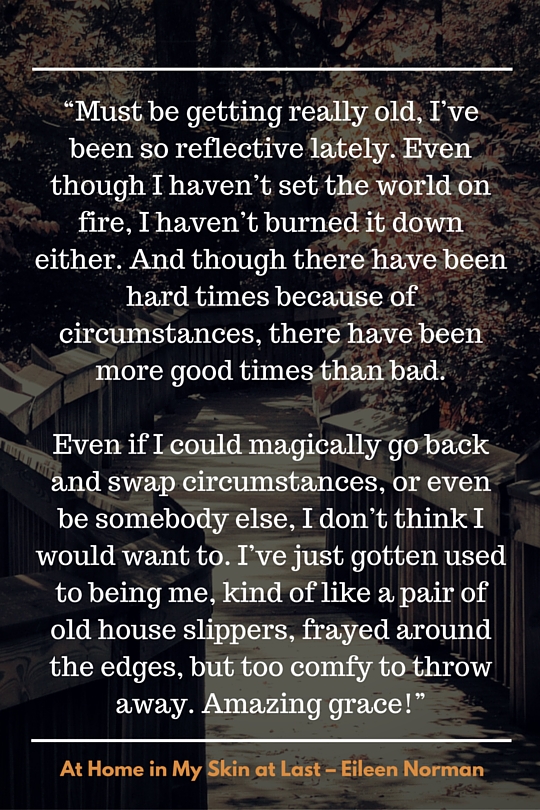
A Question From My Daughter
After a day that threatened to break my distress-tolerance scale, I could not refrain from disintegrating in front of my five-year-old daughter. We were sitting in our kitchen and I was looking at her through eyes red and swollen, from crying.
“Mama who is your mommy?” she asked while typing gibberish comprising emoticons, punctuation marks, and jumbled-up letters on my phone. “I want to tell her you are sad.”
I giggled as though she had just pounced on me with one of her random tickles. I was pleased that she was brave enough to ask things I never dared to ask when I was a child.
“Your grandmother . . . the one we visited recently . . . where we slept over, is my mother,” I stuttered.
“Oh,” she replied.
I expected more questions but she seemed satisfied with my answer. I, however, felt discontented. My answer contained only one half of the truth. How could I explain that I have two mothers or that it was possible to have two mothers?
Would she understand if I told her that I had been brought up as my grandmother’s sister’s child because my grandmother’s daughter, my mother, had given birth to me at a young age? And that the woman she called grandmother was really my mother’s maternal aunt?
In 1981, if you were twenty, schooling, and living with your parents or grandparents, as was the case in many black homes in South Africa, you were a child. Children did not raise children. They went to school. How could I tell her the truth—that sometimes mommies gave their babies away through a process called adoption? Would she not think that perhaps I too might give her to another mommy forever?
I decided to keep the answers in my things-to-tell-my-daughter-in-future file. I remembered that I was once a child who needed answers about the people who made up my family.
Unathi Kapa shares her thoughts on identity, culture, belonging, and purpose on unathikay
An Extra Mouth to Feed
In the shower, steam shrouds me but does not insulate me. I am thinking about money. I worry about my lack of it.
Once, when I manufactured a few minutes to play with him in the park, he threw the ball to me, an easy pass that I should not have missed.
“Mom you’re not looking!”
He was right, again. I am rarely present; I am in our future worrying.
“I’m sorry. Let’s play again.”
I threw the ball so it spun in an arc that began its descent farther away from where he stood. He was already moving back, calculating the trajectory of the ball. Before delight widened his eyes, weariness had narrowed them. How easily children forgive and forget.
Kalanne said that ever since she got a nanny, she was a better mother. By way of illustration, she said when Sowari spilled his milk, instead of screaming, “What’s wrong with you! Why are you so clumsy?” she now said, “Aw, darling be careful. Don’t worry Tari will clean up.”
I think that if I had money, I would be a better mother. I would not shout as I had done over the loss of his monthly bus pass, berating him with words from a tornado inside me.
I sigh and adjust the shower settings so hot water stings me like needles. When I leave my frugal pleasure-penance behind and open the door, he is there.
Steam rushes to embrace him, but it does not insulate him either.
“Mom, I’m sorry. Don’t send me to my dad. When I grow up I will buy you a car.”
Dangerous thoughts had been circling my mind. How wonderful to be free again. How much easier life without an extra mouth to feed.
I pull him close and wrap him in a fierce hug. My tears mingle with water droplets and disappear into his hair.
If the love of money is the main root of all evil, the lack of it is the secondary root.
Timi@ Livelytwist
© Timi Yeseibo 2015
The Empty Crib
We do not interrupt the drive home from the hospital with small talk. When we pull up in front of our house, the neighbours spring out from theirs. Their merriment uncoils in laughing smiles, waving arms, and dancing legs.
The confusion begins the moment I step out of the car. Their eyes travel from my empty arms to my ‘flat’ stomach and from my flat stomach to my empty arms, until someone blurts, “Where is the baby?”
We had not discussed how we would answer their questions. I go inside, while he stays behind to explain.
Death is a thief. It also stole my sleep. The sedatives they force me to drink, freeze in my digestive tract. I walk from room to room weeping for a daughter I never held. It is a long time before my legs give way and I lie on the carpet in the room with yellow walls and the empty white crib.
In the days following, they tell me I am lucky to be alive. I do not feel lucky; I feel empty. They tell me I am young; I can have other children. But, I wanted this one. Oh God, how I wanted this one.
In the beginning, I held a vigil for her every year, so she would know that even if everyone else forgot, I would not. Then one year I looked at the calendar and realized that while I was driving my son to football practice and watching my daughter pirouette in ballet class, her birthday had passed. I had not known that pain could fade into oblivion.
Now I understand what they told me many years ago: I will go to her, but she will not return to me.
Timi@ Livelytwist
© Timi Yeseibo 2015
Can a woman forget her baby?
Can she forget the child who came from her body?
Even if she can forget her children, I cannot forget you.
I drew a picture of you on my hand. You are always before my eyes.
Isaiah 49:15-16
Unauthorized use and/or duplication of this material without express and written permission from this blog’s author and/or owner is strictly prohibited. Excerpts and links may be used, provided that full and clear credit is given to Timi Yeseibo and livelytwist.wordpress.com with appropriate and specific direction to the original content.





